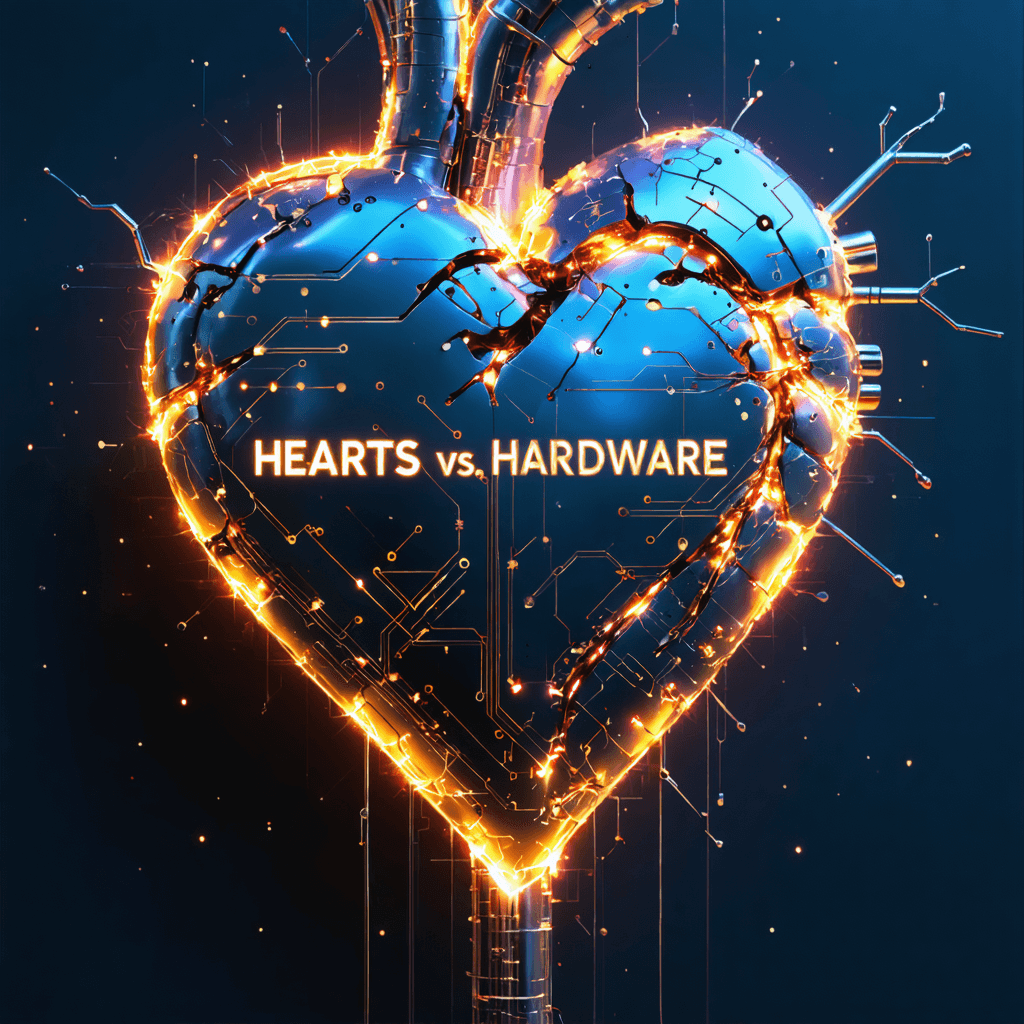Hearts vs Hardware: How EQ at Work Rivals Edge AI's Processing Power

In today's rapidly evolving workplace, a fascinating battle is unfolding between emotional intelligence (EQ) and artificial intelligence (AI). While Edge AI continues to push the boundaries of computational power, human emotional intelligence remains an irreplaceable asset in the modern workplace. Let's explore why EQ might be your secret weapon in an increasingly AI-driven world.
The Rise of Edge AI in the Workplace
Edge AI represents the cutting edge of workplace technology, bringing computational power directly to where data is created and decisions are made. With processing speeds that dwarf human capabilities and the ability to analyze vast amounts of data in milliseconds, Edge AI has revolutionized numerous industries. From predictive maintenance in manufacturing to real-time customer service solutions, its impact is undeniable.
However, the question remains: Can machines truly replace the nuanced understanding that comes with human emotional intelligence?
Understanding Emotional Intelligence in the Professional Context
Emotional intelligence encompasses several critical components:
- Self-awareness
- Self-regulation
- Motivation
- Empathy
- Social skills
These elements form the foundation of effective workplace relationships, team dynamics, and leadership capabilities. Unlike AI algorithms, which excel at pattern recognition and data processing, EQ enables professionals to:
- Navigate complex interpersonal situations
- Build genuine relationships with colleagues and clients
- Make nuanced decisions that consider human factors
- Foster inclusive and supportive work environments
The Complementary Nature of EQ and AI
Rather than viewing EQ and AI as competitors, forward-thinking organizations are discovering the power of their synergy. While Edge AI excels at:
- Processing vast amounts of data
- Identifying patterns and trends
- Automating repetitive tasks
- Providing data-driven insights
Emotional intelligence brings:
- Contextual understanding
- Ethical decision-making
- Creative problem-solving
- Authentic human connections
Practical Applications in Today's Workplace
Leadership and Team Management
While AI can provide valuable metrics and performance data, effective leadership requires the emotional intelligence to:
- Motivate team members during challenging times
- Address conflicts with empathy and fairness
- Create psychological safety in the workplace
- Build and maintain high-performing teams
Customer Relations
Though AI chatbots and automated systems handle routine interactions, complex customer situations require human EQ for:
- De-escalating tense situations
- Understanding unstated customer needs
- Building long-term relationships
- Providing personalized solutions
Innovation and Problem-Solving
Edge AI excels at analyzing data and generating solutions, but breakthrough innovations often require:
- Emotional understanding of user needs
- Cross-functional collaboration
- Creative thinking
- Intuitive decision-making
Developing EQ in an AI-Driven World
Self-Assessment and Awareness
Begin by understanding your own emotional patterns and triggers. Regular self-reflection and feedback from colleagues can help identify areas for improvement.
Active Listening
Practice focused attention during conversations, observing both verbal and non-verbal cues. This skill becomes increasingly valuable as digital communication platforms proliferate.
Empathy Training
Actively work to understand different perspectives and experiences. This might involve:
- Cross-cultural communication exercises
- Role-playing scenarios
- Mentoring relationships
- Diversity and inclusion training
Emotional Regulation
Develop strategies to manage stress and emotions effectively, particularly in high-pressure situations where AI might be providing critical data.
The Future of Work: A Balanced Approach
The most successful organizations will be those that effectively balance human emotional intelligence with artificial intelligence. This means:
- Investing in both technological infrastructure and EQ development
- Creating workflows that leverage the strengths of both humans and machines
- Maintaining a culture that values both data-driven insights and human intuition
- Developing training programs that enhance both technical and emotional capabilities
Measuring the Impact
While AI provides clear metrics for success, measuring EQ's impact requires a more nuanced approach. Consider tracking:
- Team satisfaction and engagement levels
- Customer relationship longevity
- Conflict resolution success rates
- Employee retention and growth
Looking Ahead
As Edge AI continues to evolve, the importance of emotional intelligence in the workplace will only grow. Organizations that recognize and nurture both these powers will be best positioned for success in the future of work.
Ready to enhance your professional toolkit with both emotional intelligence and technical expertise? Explore 01TEK's comprehensive courses and resources designed to help you thrive in the modern workplace. Visit our learning platform to discover programs that combine cutting-edge technical knowledge with essential soft skills development.
Learn more about balancing human intelligence with artificial intelligence in our specialized courses. Click here to explore 01TEK's professional development opportunities.
Remember: In the race between hearts and hardware, the true winners are those who master both.
#AI #EmotionalIntelligence #ProfessionalDevelopment #WorkplaceCulture #EdgeAI #Leadership
The greatest reward in becoming a millionaire is not the amount of money that you earn. It is the kind of person that you have to become to become a millionaire in the first place.
Jim Rohn



